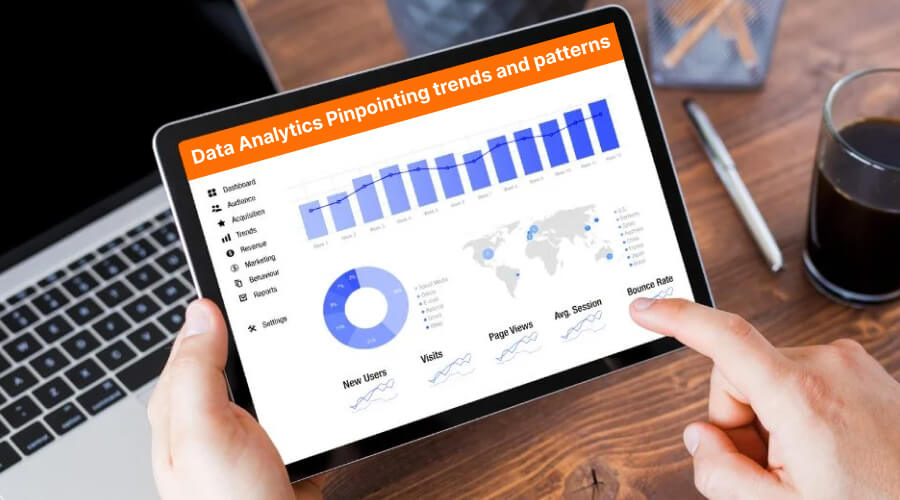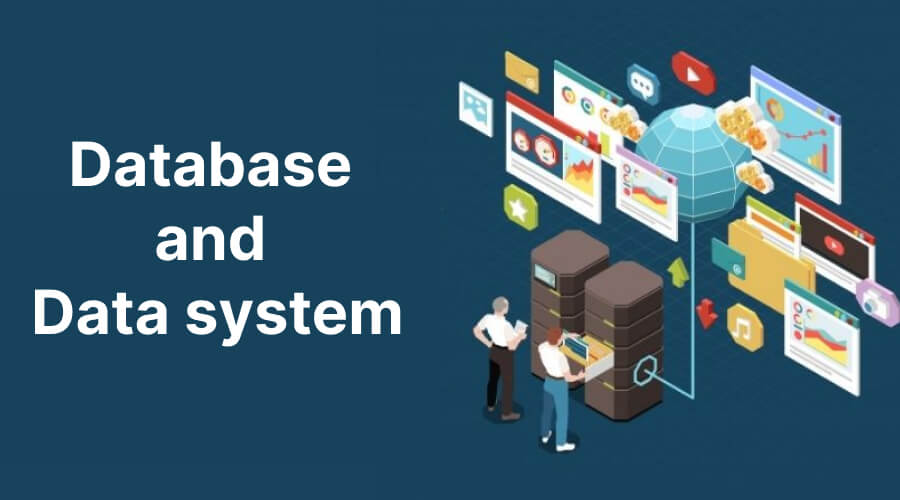
Data analysts are becoming increasingly important as businesses strive to remain competitive in an ever-changing and dynamic business environment. A practical data analyst provides valuable insights from complex sets of information that help decision-makers formulate accurate strategies for future success. With their deep understanding of the organization’s needs and objectives, they can make meaningful changes to current operations through expertise in analytical techniques such as predictive analytics or machine learning algorithms.
Data Analysts must be well-versed in statistics but also accustomed to IT security protocols while dealing with large volumes of sensitive customer information within a company’s database systems. But beyond technical applications, drawing reasonable conclusions based on sound research ability is a fundamental role requirement needed when synthesizing reports on trends from big detailed datasets quickly before deadlines hit – which ultimately makes them invaluable members of any employer seeking insight into its prospects towards growth & profitability. In this article, we go through data analyst roles and responsibilities.
Who is a Data Analyst
A data analyst collects, processes, and analyses large business information sets. They use their expertise to identify trends or patterns in the data that may help inform strategic decisions for a company or client. Data analysts are highly sought after by businesses looking to increase efficiency and productivity while providing insights into customer behavior, market fluctuations, and other key performance metrics.
In addition to having strong analytical skills, they must be comfortable working with various software applications such as spreadsheets, statistical programs, or databases to collect and process raw data. With technology constantly evolving, it’s essential for a successful analysis to stay up-to-date on new developments to remain competitive within the field of work analytics has become a crucial part of any modern organization’s operations team; therefore, companies view these professionals as valuable assets when making critical organizational choices.
Data Analyst Roles and Responsibilities
Determine organizational goals
Organizational goals are crucial to a company’s success; data analysts are essential in helping attain these objectives. Data Analysts collect and analyze patterns from the organization’s existing datasets, synthesizing this information into meaningful insights that enable leaders to make informed decisions regarding strategic planning.

It is their responsibility to help create effective strategies for optimizing efficiency and boosting organizational performance by leveraging available resources such as technology and market trends. They provide:
- Clear recommendations on optimizing processes.
- Identifying cost savings or revenue opportunities.
- Monitoring KPIs & metrics.
- Evaluating risks behind potential projects/ventures, etc.
- Thus enabling organizations to reach their overall desired outcomes efficiently.
Mining data
Data mining is an increasingly vital role for all professionals in the modern market. Data analysts are tasked with finding meaning from large amounts of structured and unstructured information from marketing to finance and operations.
Data analysts use sophisticated analytic tools such as predictive analytics, machine learning algorithms, statistical techniques, and natural language processing (NLP) methods to uncover trends within business systems or customer behavior settings that can inform decision-making processes across various sectors. It requires complex problem-solving skills and strong technical knowledge, making it an invaluable asset that businesses cannot afford to be without today!
Data cleaning
Data cleaning is a crucial part of data analytics and is the responsibility of every professional marketer. Data should be closely monitored to ensure accuracy and timely completion. A skilled analyst needs to understand all aspects, including quality assurance protocols, how to clean incorrect or missing values from datasets and methods for managing large databases efficiently.

Good communication skills are necessary for analysts to interpret results correctly with clients and internal stakeholders so that reliable conclusions can be made based on accurate data analysis.
Analyzing data
Data analysis plays a vital role in professional marketing today. It requires expertise to analyze and interpret large data sets, uncover trends, discover insights and identify patterns. An experienced Data Analyst must be able to access vast amounts of information from multiple sources, including structured databases and unstructured documents; be capable of sorting through all this data; draw meaningful conclusions that a business can use to improve their product or service offerings for customers.
Successful Data Analysts should also possess strong communication skills as they will need these when presenting the results of their analyses for stakeholders’ review – they must be adept at translating complex technical concepts into easily understood language so everyone involved in projects understands what was found during research!
RELATED: What is Data Modeling? Its Types, Concepts and Techniques
Pinpointing trends and patterns
Data Analytics is a powerful tool in business, helping identify trends and patterns that may be overlooked. As the role of data analyst continues to grow within organizations, it’s becoming increasingly crucial for them to understand how these trends and patterns can help their efforts.

With so much data available today, pinpointing relevant insights from these mass amounts requires sophisticated software tools and keen analytical skills from marketing professionals. To ensure accurate outcomes when interpreting results, advanced knowledge of predicting consumer behavior or market changes is necessary for all those leveraging trend-detection methods.
Creating reports with clear visualization
Data analyst roles and responsibilities are growing in importance as organizations seek insight from the vast amounts of data they collect. With clear visualizations, analytics professionals can effectively communicate what insights have been gleaned so businesses can make informed decisions. Successful reports depend on quality visualization capabilities, such as charts and graphs, which provide an effective way for decision-makers to comprehend key findings quickly and accurately.
Accurate analysis is crucial in transforming large datasets into meaningful information, something a professional marketing expert with many years of experience understands well enough about how to do efficiently without compromising accuracy or clarity.
Maintaining database and data system
Data analyst roles and responsibilities have become integral in the professional world as companies increasingly depend on their databases to stay competitive. As such, data analysts are required to understand how a company’s database works and be able to interpret its information or ensure the accuracy of records stored within it.

They also need solid problem-solving skills to tackle any technical errors arising from maintaining the database or resolving conflicts between system parts if required. Data analysts must also use specialized software tools for analysis, reporting, developing new processes, and recommending solutions based on results gathered through research methods like surveys or interviews with stakeholders.
Ultimately anything related to managing a company’s data systems falls under an analyst’s responsibility, who is always expected to adhere to industry standards regarding ethical practices adhering to safety and integrity protocols when handling personal/sensitive customer information.
Also See: Artificial Intelligence and Data Science: Which is Better
Skills required to become a data analyst
- Experiences in coding: Comprehensive knowledge of programming languages, such as Python, R, and SQL, to extract data from various sources.
- Analytical Skills: Ability to use sophisticated software packages for analysis with the capacity to interpret diverse datasets into useful information.
- Communication Skill: Excellent verbal & written communication skills and a practical ability to communicate complex solutions verbally or visually through graphical representation or dashboards presentations.
- Attention To Detail: Inquisitive nature and attention to detail when creating models/reports ensuring accuracy & integrity during everyday tasks.
- Leadership Capability: Capacity to lead a team by providing strategic guidance leveraging analytical insights while working alongside other professionals on cross-functional teams/projects.
- Problem-Solving Dexterity: Proven excellence in solving problems that involve complex dependencies among multiple factors; identifying areas of improvement; developing strategies designed for maximum efficiency resulting in positive business outcomes.
- Presentation Expertise: Skilled in presenting technical concepts, graphs, charts, and visual aids, conveying key messages efficiently about stakeholders’ needs/objectives contextually aware manner
- Business Data Analyst: Works with businesses to develop strategies and analyze data related to customer demand, sales goals, market trends, profitability metrics, and more.
- Financial Data Analyst: Analyzes financial reports of companies or organizations for decision-making purposes such as budgeting and forecasting.
- Market Research Data Analyst: Collects qualitative information from surveys about customer preferences that can be used in product development.
- Social Media Data Analyst: Utilizes social media analytics tools to identify user behaviors on platforms like Facebook or Twitter, which are valuable insights into targeted marketing campaigns.
- Technical/Software Development Data Scientist: Develops software algorithms through predictive models that facilitate the analysis of large datasets often found in complex systems such as machine learning applications.
- Operational Research/Optimization Specialist: Utilizes statistical methods investigating best practices for operational programming solutions, including supply chain management maintenance scheduling and others within an organization’s framework.
Data analyst job description and salary
Ready to take your career in a data-driven direction? Look no further than the field of data analysis. With an impressive median salary, exciting job roles, and fantastic growth prospects – now is the perfect time to invest in professional development to become a certified analyst.
From designing statistical models that analyze large datasets, managing databases, and software tools, implementing analytics solutions, or creating reports – gain essential insights on what it takes to succeed in this versatile profession. Get ready by giving yourself a competitive edge when discovering salaries and relevant job profiles available today! The salary of a data analyst may range from Rs.1.9 Lakh to Rs.11.2 Lakh per annum.
In conclusion, the data analyst role is essential to a modern business. Data analysts gather and analyze crucial information to inform industry decision-making processes. They must be adept at developing predictive models, creating meaningful visualizations from large datasets, identifying patterns in complex problems amidst ambiguous situations, and communicating their findings effectively with others to help drive strategic decisions within the organization.
Data Analysts play a crucial role in helping organizations thrive by using data as a tool to improve operations and understand customer behavior better than ever before. We hope this blog on data analyst roles and responsibilities is useful to the readers.






